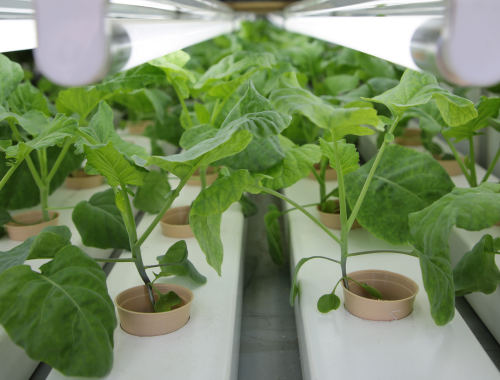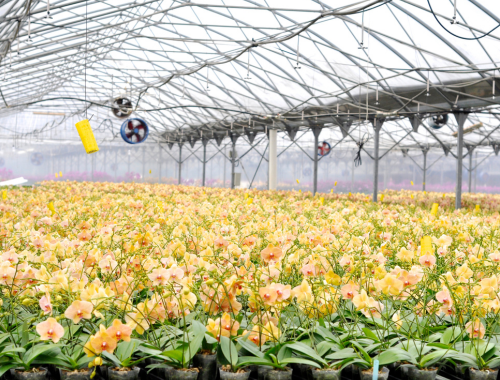Difference Between Sustainable Agriculture and Modern Agriculture

What is sustainable agriculture and modern agriculture?
In modern or industrial agriculture, chemical inputs such as synthetic fertilizers, pesticides, and non-therapeutic antibiotics (antibiotics used for animal husbandry, apiculture, aquaculture, ethanol production, horticulture) are used in modern agriculture, which is highly concentrated and mechanized. Sustainable agriculture, however, uses renewable resources, methods that safeguard the environment meeting society’s present and future food and textile needs, public health, human communities, and animal welfare.

Similarity
Both are means of agriculture and farming.
Sustainable agriculture
While there are different interpretations of sustainable agriculture, its ultimate goal is to promote farming practices that are both environmentally friendly and profitable for farmers and communities. This approach is seen as a complement to modern agriculture and values the contributions of producers and their products. Sustainable agriculture draws inspiration from organic farming methods and can be implemented on farms of all sizes, incorporating both new technologies and traditional practices.
Modern agriculture
The advancement in farming techniques and innovations, known as modern agriculture, aims to enhance efficiency while reducing the consumption of natural resources such as water, land, and energy. The objective is to cater to the increasing demand for food, fuel, and fiber across the world.
Difference between sustainable agriculture and modern agriculture
Definition
Sustainable agriculture
Sustainable agriculture refers to the practice of farming in a way that meets the current needs for food and textiles, while also ensuring that the ability to meet the needs of future generations is not compromised. This type of farming is based on an awareness and appreciation of the various services provided by ecosystems.
Modern agriculture
The field of agriculture has constantly evolved to incorporate new methods and techniques that aid farmers in enhancing productivity and decreasing their reliance on natural resources while catering to global demands for food, fuel, and fiber. This is called modern agriculture.
Agricultural Biodiversity
Sustainable agriculture
Retention of agricultural biodiversity. Evolution of genetic material by co-evolution
Modern agriculture
Loss of agricultural biodiversity and co-evolution in this case
External inputs and self-sufficiency
Sustainable agriculture
In this case, there is low level of external inputs and high-levels of self-sufficiency
Modern agriculture
In this case, there is high level of external inputs and low-levels of self-sufficiency.
Summary
The points of difference between sustainable agriculture and modern agriculture been summarized as below:

FAQ
How will you differentiate between modern agriculture and sustainable agriculture?
Industrial agriculture heavily relies on chemical inputs such as fertilizers, pesticides, and non-therapeutic antibiotics, and is highly mechanized and concentrated. On the other hand, sustainable agriculture is becoming increasingly popular because of its eco-friendly methods that safeguard animal welfare, human communities, public health, and the environment. It is a method that prioritizes sustainability.
What is the difference between sustainable agriculture and organic agriculture?
Sustainable farming emphasizes on the physical treatment of the land (examples – no till – growing crops without disturbing soils by tillage, cover crops which contribute to organic matter which is vital for good soil structure and buffer zones) whereas organic farming excludes synthetic inputs and emphasizes on the inputs used in production (examples non-Genetically Modified Organisms (GMO) and no artificial and toxic synthetic fertilizer/pesticides/herbicides).
What is the relationship of sustainable agriculture and modern agriculture?
Sustainable agriculture is a production system that prioritizes the maintenance of the health of soils, ecosystems, and people. Unlike methods that involve harmful inputs, sustainable agriculture utilizes ecological processes, biodiversity, and cycles tailored to local conditions. It incorporates traditional practices, innovation, and scientific knowledge to enhance the environment and promote equitable relationships and a high standard of living for all stakeholders. This approach to farming is more comprehensive than conventional methods because it relies on ecosystem services and has significantly less negative impact on the surrounding environment. Sustainable agriculture is a natural way of producing food and yields various social, economic, and environmental benefits.
Modern agriculture has various interpretations that involve the usage of artificial chemicals to increase crop production. Nevertheless, this aggressive technique often leads to detrimental impacts on the ecosystem, deteriorates the soil’s condition, and diminishes the variety of species, all of which come at a considerable expense. While designed to enhance productivity in agriculture, contemporary farming practices pose a substantial environmental burden.
What are 3 types of sustainable agriculture?
Crop rotation, permaculture, hydroponics and aquaponics.
Why is sustainable agriculture better?
Sustainable agriculture works with natural processes. Besides preserving and restoring ecological habitats, sustainable agriculture does not exploit resources and safeguards watersheds and improves soil and water quality.
What is considered sustainable agriculture?
Any agricultural practice that preserves soil fertility, restores biodiversity, prevents water pollution, while also ensuring profitability, social equity (justice and fairness of social policy), and environmental health.
What is modern agriculture?
The modern approach to agriculture is a way of improving efficiency and reducing the number of natural resources required to meet the globe’s food, fuel, and fiber needs.
What are the 5 main components of sustainable agriculture?
- Carbon storage on farms
- Biodiversity promotion
- Minimizing water and air pollution
- Preventing soil erosion and building healthy and productive soil
- Increasing resilience to climate change
How modern farming is not sustainable?
Modern farming is not sustainable, because the natural resources, the environment, the and the ecosystems are damaged so much that farming relies on artificial inputs such as conventional fertilizers and pesticides rather than on the land.
- Difference Between Global Warming and Greenhouse Effect - May 18, 2024
- Difference Between Vaccination and Immunization - March 3, 2024
- Difference Between Selective Mutism and Autism - February 25, 2024
Search DifferenceBetween.net :
Leave a Response
References :
[0]Stenoien, C., Nail, K. R., Zalucki, J. M., Parry, H., Oberhauser, K. S., & Zalucki, M. P. (2018). Monarchs in decline: a collateral landscape‐level effect of modern agriculture. Insect Science, 25(4), 528-541.
[1]Wang, H. H., Wang, Y., & Delgado, M. S. (2014). The transition to modern agriculture: Contract farming in developing economies. American Journal of Agricultural Economics, 96(5), 1257-1271.
[2]Zinck, J. A., Berroteran, J. L., Farshad, A., Moameni, A., Wokabi, S., & Ranst, E. V. (2004). Approaches to assessing sustainable agriculture. Journal of Sustainable Agriculture, 23(4), 87-109.
